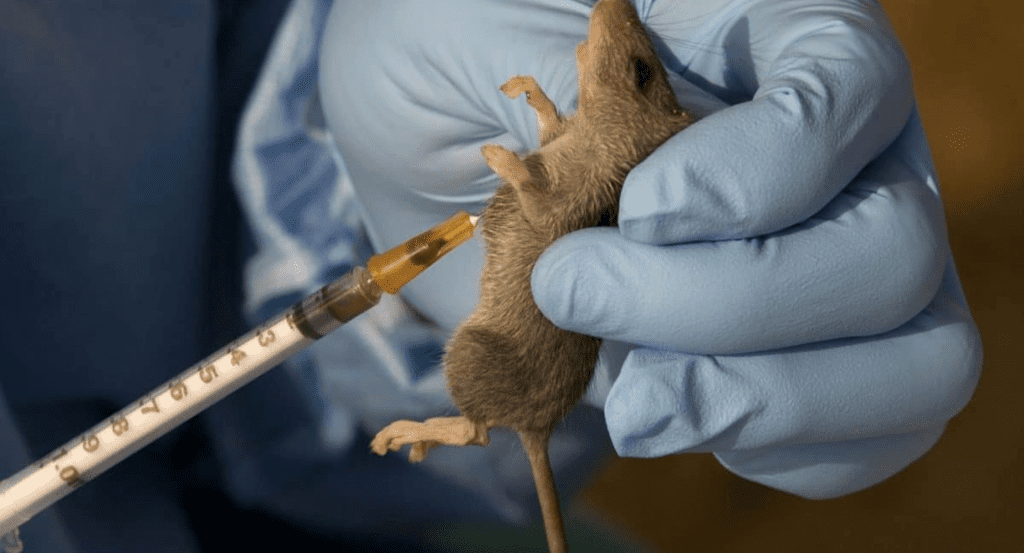Nigeria is currently facing a significant public health crisis as the Lassa fever outbreak continues to ravage various parts of the country. The Nigeria Centre for Disease Control (NCDC) has reported 80 deaths in just one week, as authorities scramble to control the spread of the disease. With confirmed cases in several states, including Benue, this outbreak highlights the need for urgent intervention to prevent further loss of life.
Lassa fever is endemic in West Africa and often surges during the dry season, typically between November and April. This recent outbreak has spread at an alarming rate, leading to concerns over the country’s ability to contain it. The current death toll is particularly concerning, with fatalities escalating rapidly, creating a sense of urgency among healthcare professionals and government agencies.
The Spread of Lassa Fever in Nigeria
Lassa fever is a viral hemorrhagic illness caused by the Lassa virus, typically transmitted through contact with food or household items contaminated by the urine or feces of infected rodents. Human-to-human transmission can also occur through direct contact with bodily fluids or contaminated surfaces. The current outbreak has affected several states, including Benue, where authorities have confirmed a surge in cases.
The Benue State government has raised alarms after identifying multiple Lassa fever cases. Healthcare professionals in the region are working to identify and isolate affected individuals to prevent further transmission. Despite their efforts, the high number of fatalities in such a short period underscores the severity of this outbreak.
Response from Health Authorities
The NCDC has been at the forefront of efforts to control the Lassa fever outbreak. According to the agency, over 80 people have succumbed to the illness in the last week alone, with thousands more at risk of infection. The NCDC is working in collaboration with state health ministries and international partners to strengthen surveillance, enhance diagnostic capacity, and deploy rapid response teams to affected areas.
Dr. Ifedayo Adetifa, the Director-General of the NCDC, emphasized the importance of early detection and treatment in managing Lassa fever cases. He urged individuals in affected regions to report symptoms such as fever, vomiting, and bleeding to medical facilities immediately. He also stressed the need for proper hygiene practices, particularly in rural areas where rodents are common.
The World Health Organization (WHO) has expressed concern over the rising number of cases in Nigeria and is providing technical assistance to help contain the outbreak. WHO officials are working closely with local authorities to monitor the situation and ensure that adequate resources are available to manage the crisis.
Benue State Takes Action
Benue State is among the most affected regions in the current outbreak, with local health officials confirming an increase in Lassa fever cases. The state government has intensified public health campaigns to raise awareness about the disease and encourage residents to take preventive measures. Health facilities in Benue have been placed on high alert, with healthcare workers receiving additional training on managing Lassa fever cases.
Governor Samuel Ortom of Benue State has called for calm while assuring residents that the government is doing everything possible to control the outbreak. He urged citizens to adhere to health guidelines and cooperate with authorities in the ongoing efforts to combat the spread of the virus.
The Benue State Ministry of Health has also issued a public health advisory, urging residents to avoid contact with rats and maintain clean environments to reduce the risk of infection. The ministry is working with community leaders to promote these preventive measures, especially in rural areas where the risk of rodent-to-human transmission is higher.
Preventive Measures and Challenges
One of the biggest challenges in combating the Lassa fever outbreak in Nigeria is the widespread presence of rodents, particularly in rural communities. The multimammate rat, which is the primary carrier of the Lassa virus, thrives in environments where food is poorly stored and waste is not properly disposed of. This makes it difficult to completely eliminate the risk of transmission, especially in regions with limited access to proper sanitation and waste management facilities.
Public health officials are advising residents to store food properly, keep their homes clean, and eliminate potential rodent habitats. In addition, people are being urged to avoid direct contact with anyone showing symptoms of Lassa fever, as human-to-human transmission is also a concern in this outbreak.
The NCDC and state governments are also facing difficulties in managing the outbreak due to a lack of healthcare resources in some regions. The healthcare system in many affected areas is overwhelmed, with limited access to diagnostic tools, medical supplies, and trained personnel. This has made it harder for health officials to respond swiftly to new cases and provide the necessary care for those affected.
The Path Ahead
While Nigeria has faced Lassa fever outbreaks in the past, the current situation is particularly dire due to the high number of fatalities in such a short time. The government and its partners are working tirelessly to contain the outbreak, but challenges remain, particularly in rural communities where resources are scarce.
Efforts are underway to scale up response activities, including increased testing, surveillance, and public health awareness campaigns. However, without sustained support and coordination, the Lassa fever outbreak in Nigeria could worsen, leading to more deaths and further strain on the country’s healthcare system.
As the situation develops, Nigerians are urged to remain vigilant and follow health advisories to protect themselves and their families from the ongoing Lassa fever outbreak. The coming weeks will be critical in determining whether the country can successfully curb the spread of the virus and prevent more lives from being lost.




















